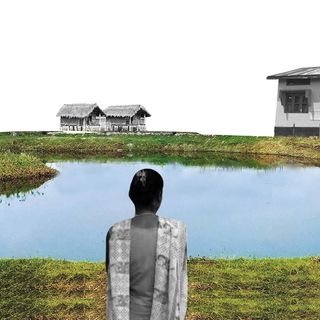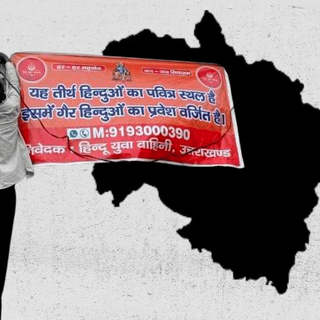
Almost 84% of Cases Filed by SC/ST Women, Children Are Pending in Court: Govt Panel
Attacks on oppressed-caste women and children have increased by 15% over the last three years, the panel noted.

A parliamentary committee to evaluate crime and atrocities against women and children has noted in a report that most cases filed by those belonging to oppressed castes languish in court and a very small proportion of them actually end up in convictions.
The government panel found that during 2017-19, the conviction rate of those accused of a crime, including rape and kidnapping of women, under the Prevention of Atrocities (PoA) Act, was as low as 26.86%, while a staggering 84.09% of cases remained pending trial, The Print reported. This means that more than three-quarters of cases dealing with harassment and assault of oppressed-caste women and children have yet to be heard by a judge or reach a conclusion.
The parliamentary report made use of the National Crime Records Bureau’s (NCRB) data, which found crimes against women and children of Scheduled Castes and Scheduled Tribes increased by 15.55% between the same period.
In defining what constitutes a crime, the report said it “includes the offenses of rape, attempt to rape, and assault on women to outrage the modesty, insult to modesty, and kidnapping and abduction to compel her to marriage.”
Out of the 3,486 cases registered under IPC Section 376 (rape) by SC women and minor girls in 2019, 88.9% of them were still stuck in hearing. In particular, the rate of pending crimes against Dalit women and girls at Special Courts is high for all forms of violence, the report says.
A high rate of pending cases suggests a delay in getting justice, high legal costs, and more chances of intimidation, especially if the power dynamics between the accused and survivor are skewed. In caste- and gender-based violence cases, power imbalances are a defining feature of the crimes. While the report only takes into account data till 2019, pending cases could actually be higher. The issue of long, dragged-out, unconcluded cases has been a well-recognized malaise in the legal system, and if anything, has been exacerbated during the pandemic: the number of cases cleared by India’s lower courts overall dropped by 70% in 2020, according to the Leaflet.
Related on The Swaddle:
The Dalit Caste Identity of Hathras Victim Is Vital to Recognizing Her Rape as a Casteist Crime
The panel said the poor implementation of existing laws and the “apathetic” attitude of law enforcement agencies were potential reasons for the increase in the crime rate. “Moreover, the high acquittal rate motivates and boosts the confidence of dominant and powerful communities for continued perpetration,” it added.
During the three years examined, a total of 1,31,430 incidents of crime were reported under the Scheduled Caste and Scheduled Tribe (Prevention of Atrocities) Act. Out of these, 15.73% were against women and children — almost 20,673 cases. The total crimes against women increased from 6,321 in 2017 to 6,800 in 2018 and 7,485 in 2019.
The report was presented by the Parliamentary Standing Committee on Home Affairs in a Rajya Sabha session last week. Headed by Congress minister Anand Sharma, the panel made the following recommendations: government collaboration (Ministry of Social Justice and Empowerment with Ministry of Home Affairs) to provide legal support and rehabilitation of survivors of gender- and caste-based violence, and that law agencies should include the amended provisions of the PoA Act while registering cases of rape, sexual harassment committed against SC/ST women.
The amended provisions are important on two accounts: they say conducting a preliminary inquiry before registration of an FIR is no longer required and also eliminate the need to get prior approval from official authorities for arresting an accused.
The PoA Act is the overarching legislation passed in 1989 to deter crimes against SCs, STs, and marginalized communities such as Dalits. It was thought that imposing harsh penalties and providing relief and rehabilitation to victims of caste-based discrimination would be a much-needed affirmative policy.
However, activists and experts have noted that the Act, along with other constitutional safeguards to address economic and social conditions of marginalized communities, has done little to dismantle caste-based violence and discrimination.
The current analysis offered by the parliamentary panel, which indicates a rise in crimes against oppressed-caste women and children, aligns with this criticism. A separate set of data released by the NCRB noted that in 2020 alone, crimes against Dalits increased by 7%. Most of these included some form of violence against women: stalking, harassment, assault, and rape.
When it comes to addressing forms of oppression, legislative measures such as PoA almost always fall short. Writer and activist Meena Kandaswamy noted in an article in Religion Unplugged: “…they have failed spectacularly because the criminal judicial system in India almost always condones caste violence, and the fact that Dalits are a numerical minority within society also ensures that the political class does not always act in their best interests.”
Saumya Kalia is an Associate Editor at The Swaddle. Her journalism and writing explore issues of social justice, digital sub-cultures, media ecosystem, literature, and memory as they cut across socio-cultural periods. You can reach her at @Saumya_Kalia.
Related


Equal Property Rights for Women Can Help Reduce Domestic Violence: Report
